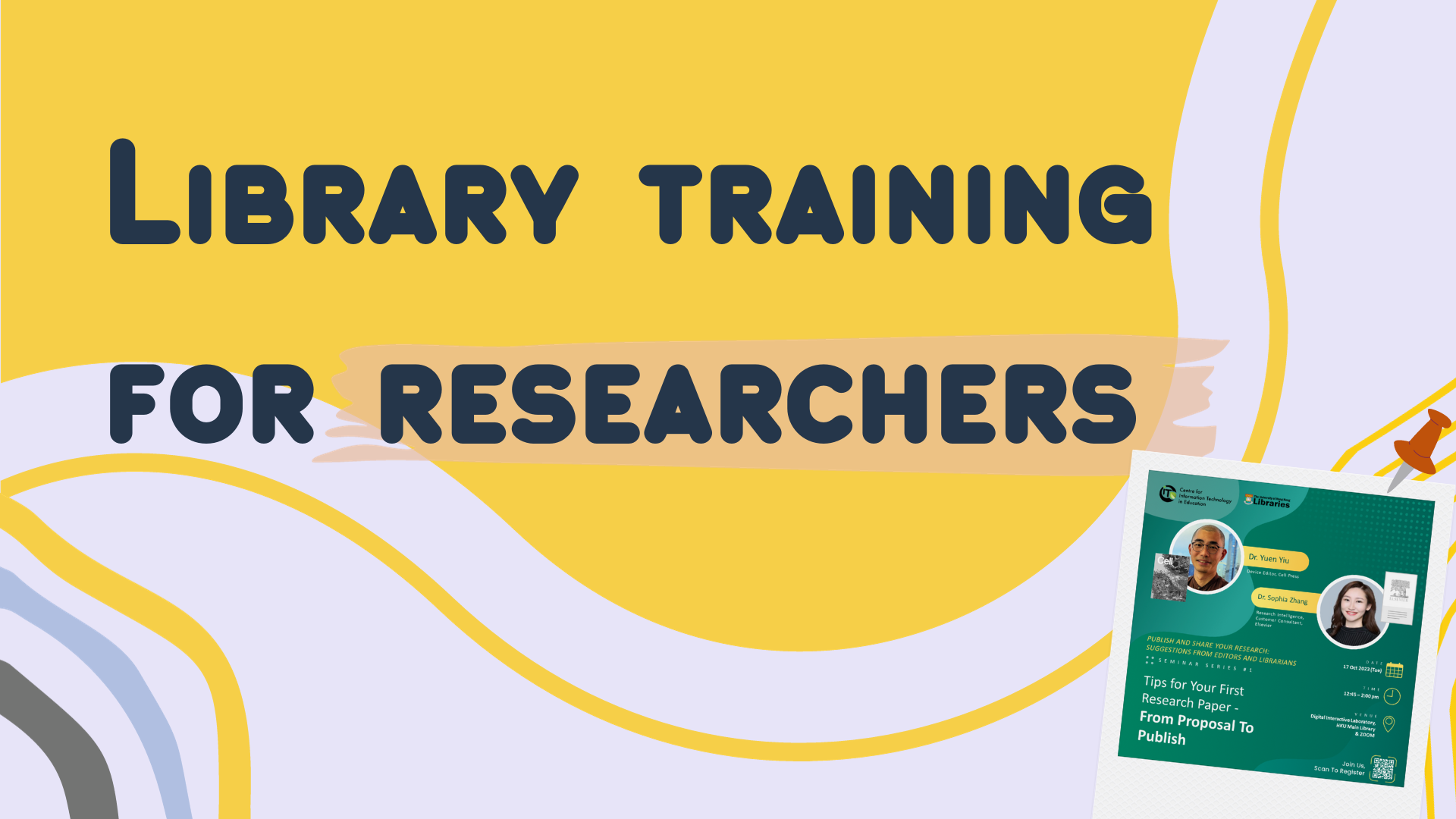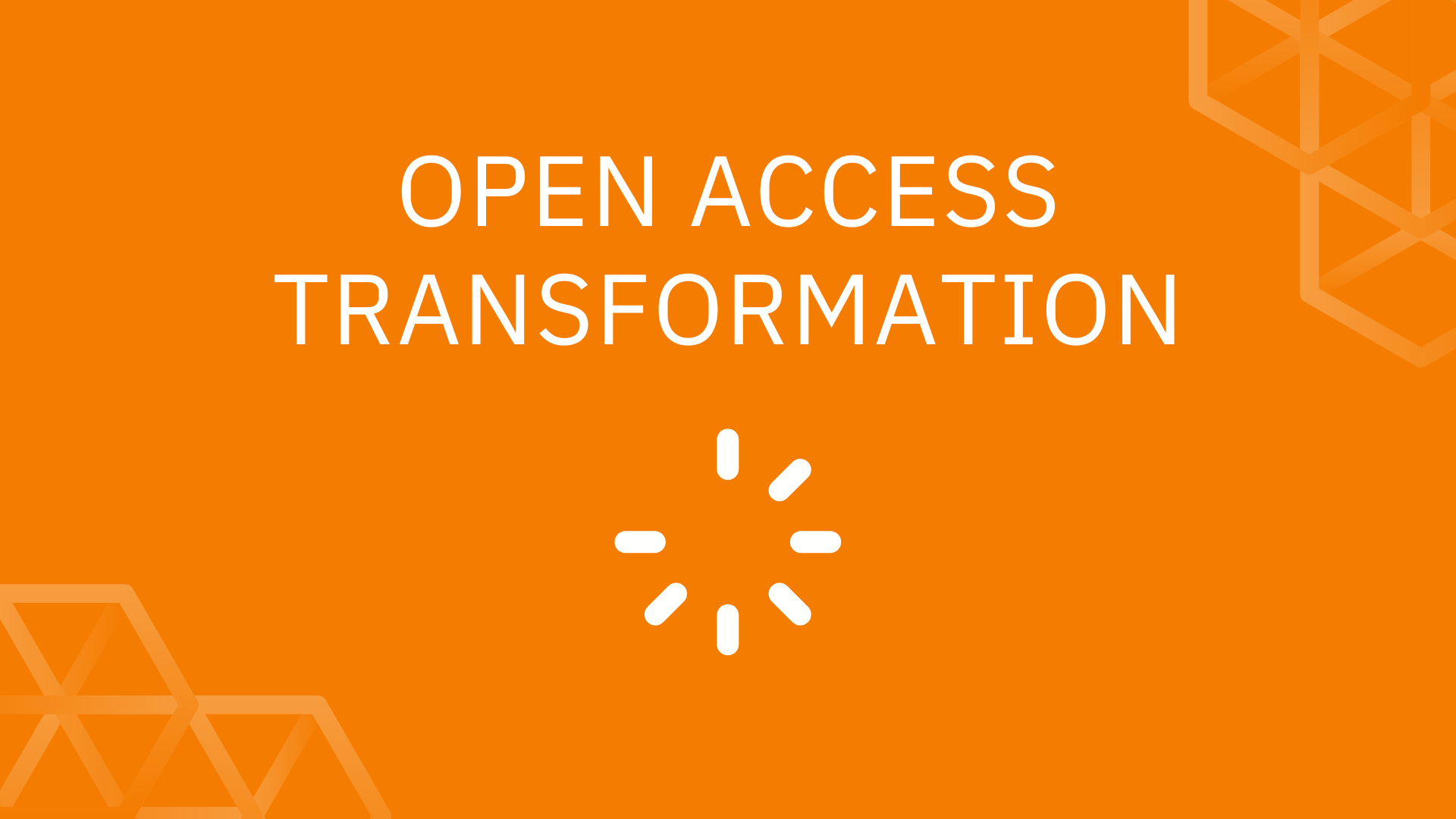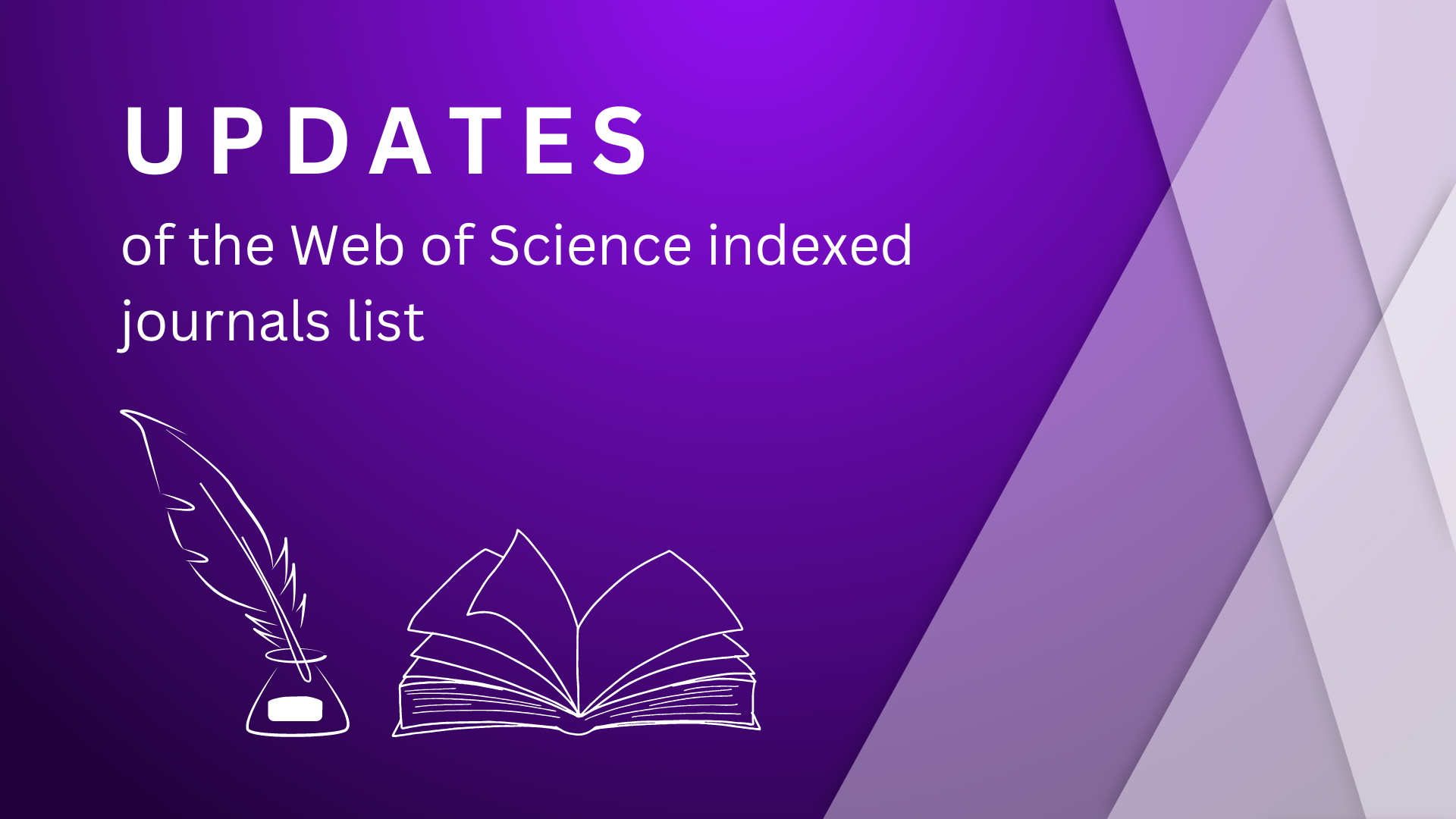
Celebrate the Open Access Week 2023 with HKU Libraries
The International Open Access Week is organized by SPARC in partnership with the Open Access Week Advisory Committee every year, aiming to provide an opportunity for the academic and research community to learn what the potential benefits of Open Access (OA) are, to share what they have learned or their own experience engaging in Open…
Read More
Publish and Share Your Research: Suggestions from Editors and Librarians Seminar Series
The Libraries is co-organizing a series of seminars with CITE (Centre for Information Technology in Education, Faculty of Education, The University of Hong Kong) to provide researchers with useful advice on publishing your research. Eight seminars on various topics by journal editors and librarians will be held in this academic year. No matter an early…
Read More
Breaking Down Barriers: Transformative Agreements Bringing Open Access to Research
Transformative agreement A transformative agreement is a type of open access publishing agreement that seeks to transform the traditional subscription-based model of scholarly publishing into a more sustainable and equitable system. This new model includes two main components: “Read” and “Publish”. “Read” refers to the subscription fees to access journal articles published behind a paywall,…
Read More
Transforming Open Access: Report of the 16th Berlin Open Access Conference
The Conference From 6-7 June 2023, representatives of research communities from 38 nations and six continents gathered at the 16th Berlin Open Access Conference (B16) hosted by the Max Planck Society. The purpose of the conference was to gather global actors in discussion of viable strategies to transform scholarly publishing from the long adopted traditional…
Read More
An Impactful Initiative: A Summary of HKU Libraries Open Access Author Fund in 2022/23
The HKU Libraries Open Access Author Fund, a key initiative of the Libraries to support open access by HKU researchers, has been run for the first financial year. Join us in celebrating success with a few outcome snapshots. Applications In the financial year 2022/23, the Fund supported 84 journal articles authored by HKU scholars and…
Read More
Unlocking the Path to Success: Tips for Becoming a Strong Researcher and Getting Published
Becoming a good researcher and getting published are two goals that go hand in hand. To succeed as a researcher, it is essential to both conduct rigorous research and communicate your findings effectively. Conducting rigorous research To conduct research, you will go through stages including: Below are some tools and training courses available via the…
Read More
A Step Forward Towards Open Access: The RGC Publication Gateway
The concept of Open Access (OA) in scholarly research community seeks collaborative efforts from different stakeholders to grant free and open online access permanently to academic information, such as journal article publication and research data, etc. As a major academic research funder in Hong Kong, the Research Grants Council (RGC) revealed its 5-year roadmap of…
Read More
Beyond citations — Demonstrate your research impact with alternative metrics
Introduction to Altmetrics Alternative metrics (also known as altmetrics) indicate the attention of scientific outputs which are shared, mentioned, and discussed in online environments, which are derived from users’ actions on various social media platforms and other online sources (e.g., Wikipedia) [1]. Altmetric.com is a platform to find altmetrics for research outputs by tracking a…
Read More
Avoid Falling Prey to Predatory Journals
Predatory journals The emergence of predatory journals (fraudulent, deceptive, or pseudo-journals), journals with deceptive and dishonest practices, has been reported in recent years [1-4]. The journals falsely claim to be offering peer review and publish all articles, regardless of their research rigor, in exchange for a fee. Predatory journals exploit the open-access model in which…
Read More
Extensive updates of indexed journal list on Web of Science for research integrity assurance
Clarivate announced in March 2023 that over 50 journals have been delisted from the Web of Science Core Collection in their latest update. The delisted journals failed to meet their quality criteria during the selection review. In the current selection practice, journals are evaluated by 28 criteria, including 24 quality criteria designed to select for…
Read More